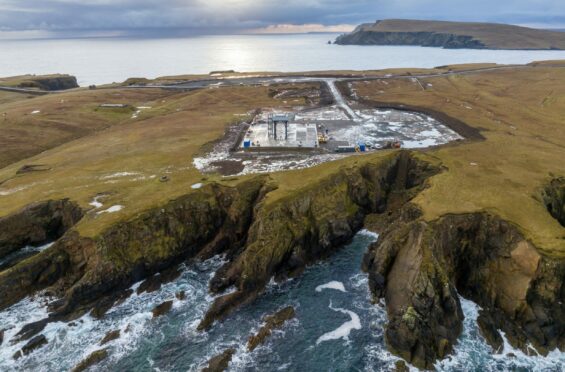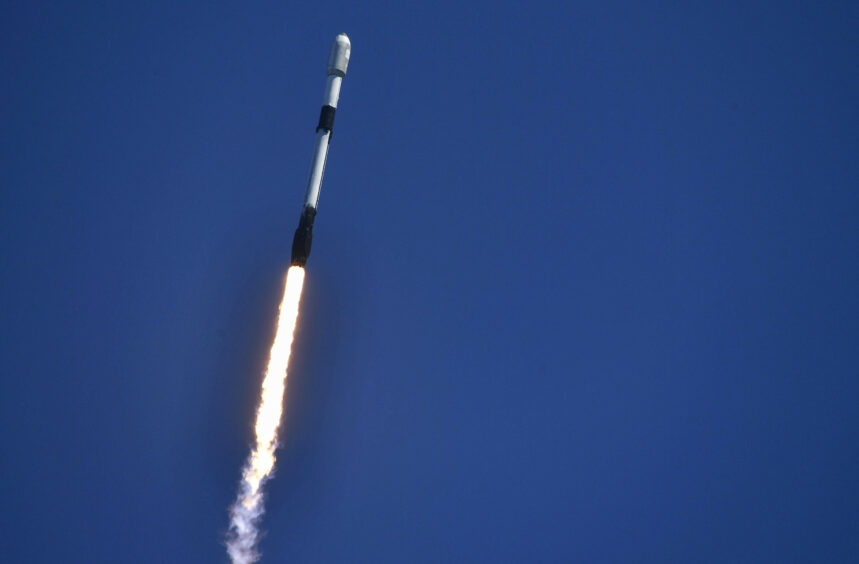
Scotland’s space race is still on course for lift-off despite the shock collapse of a leading global satellite-launching company, according to industry leaders and experts.
British tycoon Sir Richard Branson’s rocket firm Virgin Orbit filed for bankruptcy in the US last week after failing to secure new investment. The company, based in California, announced it would cut 85% of its workforce.
Virgin Orbit was founded in 2017 and launches rockets from beneath modified Boeing 747 planes to send satellites into space.
In January, however, one of its rockets failed to complete its first-ever satellite launch from UK soil – from a space port in Cornwall – after one of the engines began to overheat, sending its payload of US and UK intelligence equipment plunging into the ocean.
The firm has stopped operating but it hopes to find a buyer for the business.
The failure of Virgin Orbit, which had planned launches from Scotland in the future, has sent shockwaves through the global space industry.
However, experts insist it won’t derail ongoing operations here.
Iain Woodhouse, professor of Earth Observation at Edinburgh University and co-founder of satellite data firm Earth Blox, said the situation was unfortunate but is “no cause for concern”.
“The business model of Virgin Orbit is only one element of the space industry,” he told The Sunday Post. “They provide one mode of launching small satellites and pitch it as a cheaper alternative to launching satellites via vertical launch.
“However, before launch we also need companies to design and build the satellites and design and build the rockets and there are companies in Scotland that do both of those.
“And when the satellite is in orbit you also need companies to collect and analyse the data it collects, and operate it during its lifetime. There are companies that do all of these things in Scotland too, and have been for 20 years.
“It is widely recognised that the real growth area for the industry is in the analytics of Earth observation data. There is huge potential to deliver economic impact and sustainable growth using such data for climate impact, agriculture and flood mitigation.” He added: “The loss of one company that supplies one part of the chain outside of Scotland is unfortunate, but is no cause for concern.”
The UK space industry has been growing at pace in recent years. Seven launch sites have been proposed around Britain, each bidding to be the first and the best to attract international customers seeking to launch satellites in to space.
Alongside Cornwall in the far south of England, Wales will have one in Snowdonia – but Scotland has the most with five.
They are to be located in Prestwick, Campbeltown, the Western Isles, Sutherland and Shetland. The latter three will house the UK’s only vertical launch pads.
According to figures from the UK Space Agency, the space sector already generates £17.5 billion a year, and employs almost 49,000 people.
SaxaVord Spaceport – based on Shetland – aims to host the first ever vertical blast-off from UK soil later this year.
SaxaVord’s chief executive Frank Strang is bullish about the future. He said: “Virgin Orbit’s sad demise will not affect Scotland’s potential to be a player in the space industry one bit.
“We have a huge opportunity in the sector and satellite manufacture is only going from strength to strength in the Central Belt.
“On Shetland we have three European companies testing their engines with us and we are contracting with clients from Germany, France and the USA. We currently have 70 full-time employees and expect to be close to 150 by the start of next year.
“I see Scotland playing a significant role in what will be a burgeoning UK space industry whereby the space economy bookends the UK from Shetland in the north to Cornwall in the south.”
Over a few short years Scotland has been developing a world-class space industry and is home to around one fifth of the UK’s space workforce, currently employing around 8,500 people. Glasgow manufactures more small satellites than any other city in Europe; Edinburgh hosts Europe’s largest centre for informatics and is the location of more than 170 data science companies, and Space Hub Sutherland will see launches by Forres-based owners Orbex from next year.
It’s not just home-grown companies that are part of our growing space sector though.
California company Spire, a pioneer in the industry, design, test and build their own satellites in Scotland and US aerospace giant Lockheed Martin is also developing launch operations at SaxaVord.
Scotland’s ambition to become Europe’s leading space nation by 2030 has also being given a boost under the guidance of a group of global experts from the space industry.
The Scotland International Space Advisory Committee consists of members of the Scottish Government’s GlobalScot programme – a network of Scots in business around the world – who have come together voluntarily to provide advice and identify opportunities to achieve a £4 billion share of the global space market and 20,000 jobs in the sector over the next seven years.
Former Business Minister Ivan McKee said: “Space brings great opportunity for Scotland in terms of the economic development it delivers, its relevance for the climate change agenda and the power it has to inspire the next generation. The space sector is a key opportunity for the future, and we will continue to build on our strengths.”
However, recent progress isn’t the first attempt at building a British launch industry.
A red and white rocket, dubbed “the lipstick”, was supposed to be the start of something major for the UK. It took off in 1971, sending a satellite into space.
The programme was called Black Arrow, and this was the first British-built rocket to fire a British-built satellite into orbit – although it blasted off from Australia.
But the costs of the fledgling programme were considered too high by the then UK Government, so that first launch turned out to be the last.
The launch industry paused for many years after this, but another branch of the space race did take off in Britain – satellite building.
This has helped to drive a burgeoning space sector, which, according to a recent government report, is currently worth £17.5bn a year to the UK economy.
Within this, Scotland’s share has grown by almost £40 million, helping to kick off new companies and create jobs, according to latest figures.
The report showed that sector income in Scotland rose from £141 million to £180 million into 2021, the number of space organisations rose from 144 to 183, and employment increased from 8,440 to 8,568.
The UK Space Agency said Scotland has seen the fourth biggest boost in the number of space organisations after London, the South West and the South East of England.
Dr Paul Bate, the agency’s chief executive, said: “We have seen a significant rise of space organisations in Scotland, of sector income in the West Midlands, and of employment in the North West.
“To ensure we continue this journey, it’s crucial that we nurture skills and expertise, both established and emerging.”
The UK Government insisted that despite the collapse of Virgin Orbit it remained committed to backing the development of a dynamic UK spaceflight sector, saying: “Our focus is on supporting multiple projects designed to make us the leading provider of commercial small satellite launch in Europe by 2030, generating more jobs and growth across the country.”
It added: “There is significant activity under way in Scotland, with the UK becoming an attractive choice for launch providers.”

Enjoy the convenience of having The Sunday Post delivered as a digital ePaper straight to your smartphone, tablet or computer.
Subscribe for only £5.49 a month and enjoy all the benefits of the printed paper as a digital replica.
Subscribe © Craig Bailey/Florida Today via AP
© Craig Bailey/Florida Today via AP